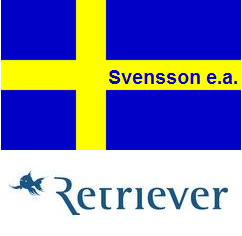Opinie naar aanleiding van gestelde vragen in Svensson v Retriever
 Redactionele bijdrage ingezonden door Charlie Engels en Anja Kroeze, Buma/Stemra.
Redactionele bijdrage ingezonden door Charlie Engels en Anja Kroeze, Buma/Stemra.
Een opinie naar aanleiding van gestelde prejudiciële vragen [IEF 12057]. This article aimed to provide an insight with regard to the issues that surround linking in the music industry. Obviously the questions that were posed to the Court resulted from a very different factual background. But the decision of the Court in this case will probably have important implications that will reach far beyond this particular background. A lot of different industries will be affected.
Needless to say, it will not be easy for the Court to provide answers which will easily fit the different appearances of linking and all the different types of business models that are out there. Therefore the Court should apply a great deal of caution when answering the questions and keep in mind the far reaching effects that its judgment will have.
The technique of (normal) hyperlinking forms an essential part of the way internet functions and there are probably very few parties that would wish the Court to state that this form of hyperlinking is always a communication to the public. This would indeed lead to undesirable situations. However, as has been described above, not every type of link results in the same effect, and the situations in which links are used often also differ considerably. Especially when it comes to embedding and framing, it is clear that this encompasses more than mere referencing.
The Court may have concerns with regard to the impact its decision could have on the free flow of information and certain fundamental rights, if it were to decide that some forms of hyperlinking constitute a copyright infringement. In this regard it is probably important to keep in mind that, as the Court has pointed out in its judgment in the case of Scarlet/Sabam, the national courts will always have to strike a fair balance between the protection of intellectual property rights on the one hand and other fundamental rights such as the freedom to receive or impart information and the freedom to conduct business on the other hand.38 In the event that the Court were to come to the conclusion that certain types of links are to be regarded as a communication to the public (in particular situations), the judgment of the Court in the aforementioned case would probably prevent any excessive enforcement of intellectual property rights in this regard.


























































































